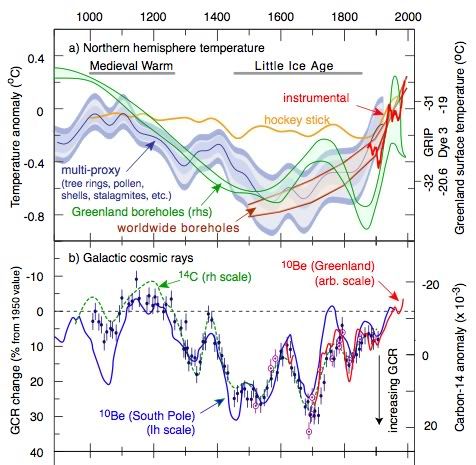http://www.csmonitor.com/Environment/20 ... break-freeHuge chunk of Antarctic ice sheet set to break free
A 300-square-mile portion of the Pine Island Glacier is expected to break off in the next few months, creating a massive Antarctic iceberg. The glacier is contributing the sea-level rise.
By Pete Spotts, Staff writer / November 4, 2011
Antarctica's Pine Island Glacier is preparing to shed a 300-square-mile chunk of its ice to the ocean in a process of ice loss that has been accelerating in recent years.
.
Even at 300 square miles, the chunk is modest by historical standards. In 1956, for instance, the crew of the icebreaker USS Glacier spotted a Belgium-sized berg from Antarctica floating near Scott Island in the South Pacific Ocean.
Still, the Pine Island Glacier's losses probably represent Antarctica's largest contribution so far to global sea-level rise, notes Hamish Prichard, a researcher with the British Antarctic Survey in Cambridge, England.
The glacier is a key outlet for the West Antarctic Ice Sheet, one of the continent's two major ice caps and a significant source of concern for long-term sea-level rise as the globe's climate warms.
Carbon-dioxide emissions from burning fossil fuels and from land-use changes are seen by most climate scientists as a key driver behind the warming trend, particularly during the past 30 to 40 years.
In one study, published in January in the journal Nature Geoscience, a team of Canadian scientists has projected that even if CO2 emissions end by 2100, stabilizing global average temperatures, the warming will have set up long-term circulation changes in the ocean that will continue to warm the waters around Antarctica for thousands of years.
If this were to happen, the researchers estimate, the West Antarctic Ice Sheet would collapse by the year 3000, raising sea levels by several meters.
Scientists estimate that the cracks formed in late September or early October. An overflight Oct. 26 revealed an 18-mile-long fissure some 240 feet across and from 165 to 190 feet deep – essentially down to sea level.
If the chunk breaks off during the next few months, as expected, the ice shelf that forms the seaward end of the glacier will have retreated to its farthest point since researchers first began keeping track in the 1940s, NASA scientists say.
Glaciologists "are only starting to understand why the glacier is changing now," says Dr. Prichard in an e-mail exchange. The lead suspect is relatively warm ocean water – so-called circumpolar deep water – that is warm enough to melt the underside of the ice shelf.
Typically, ice shelves are grounded against rises in the sea floor near the coast. But warm seawater has been melting the underside of Pine Island Glacier's shelf, separating the shelf's bottom from the rise and allowing the once-grounded section of the shelf to float free. This allows additional warm water to cross the top of the rise and pool behind it, melting more of the shelf's underside.
As the shelf thins from the bottom, the weaker, unanchored ice grows more vulnerable to stresses imposed by the rising and falling of the tides.
Prichard notes that this crack is forming in a general location where the shelf tends to break about once every decade. "So we'd expect to see a large iceberg [there] sometime soon," he says.
But, he adds, "it will be really interesting to see if the ice shelf recovers this time and regrows to its current size."
His research shows the ice shelf getting thinner and probably weaker over time. If it becomes smaller as well, it "would allow Pine Island Glacier to continue its trend of acceleration" and a increase its contribution to sea-level rise.
Scientists discovered the crack as they flew over the area during a sortie with NASA's Operation IceBridge. It's a research program that is bridging a gap between the unexpected demise of the agency's IceSat satellite and the expected launch of IceSat 2 in 2016.
NASA is flying over key regions of Antarctica and Greenland with an instrument-laden DC-8 jet to gather the same kind of data IceSat collected. The project also includes a Gulfstream V jet operated by the National Center for Atmospheric Research in Boulder, Colo.
A skeleton walks into a bar. Orders a beer, and a mop. -anon



